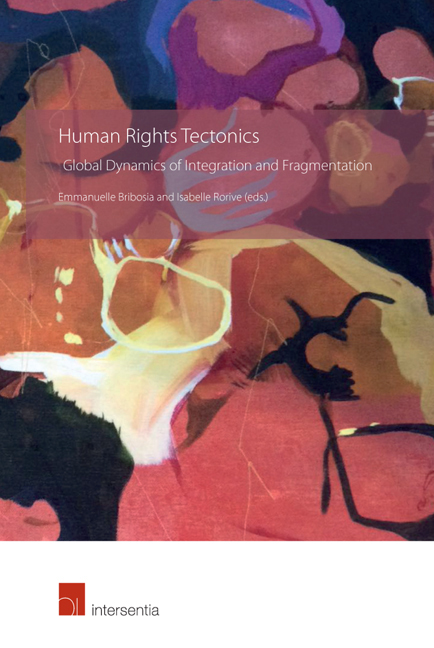Book contents
- Frontmatter
- Foreword
- Contents
- List of Cases
- List of Contributors
- Introduction to Human Rights Tectonics
- PART I PROMISES AND CHALLENGES OF AN INTEGRATED APPROACH TO HUMAN RIGHTS
- The Formation of a Common Law of Human Rights
- UN Special Procedures: System Puppets or User's Saviours?
- The African Court on Human and Peoples’ Rights: A Uniquely Equipped Testbed for (the Limits of) Human Rights Integration?
- The Role of Non-Judicial Bodies in Human Rights Implementation
- PART II HUMAN RIGHTS TECTONICS THROUGH AN ISSUE-BASED APPROACH
- PART III HUMAN RIGHTS DYNAMICS IN EUROPE
- About the Editors
UN Special Procedures: System Puppets or User's Saviours?
from PART I - PROMISES AND CHALLENGES OF AN INTEGRATED APPROACH TO HUMAN RIGHTS
Published online by Cambridge University Press: 31 January 2019
- Frontmatter
- Foreword
- Contents
- List of Cases
- List of Contributors
- Introduction to Human Rights Tectonics
- PART I PROMISES AND CHALLENGES OF AN INTEGRATED APPROACH TO HUMAN RIGHTS
- The Formation of a Common Law of Human Rights
- UN Special Procedures: System Puppets or User's Saviours?
- The African Court on Human and Peoples’ Rights: A Uniquely Equipped Testbed for (the Limits of) Human Rights Integration?
- The Role of Non-Judicial Bodies in Human Rights Implementation
- PART II HUMAN RIGHTS TECTONICS THROUGH AN ISSUE-BASED APPROACH
- PART III HUMAN RIGHTS DYNAMICS IN EUROPE
- About the Editors
Summary
Following the establishment of the UN Human Rights Council, the then Secretary-General, KofiAnnan, termed the UN special procedures the ’ crown jewel ’ in the UN system.Earlier, a report to the former Commission stated that they were ‘ the essential cornerstone of United Nations efforts to promote and protect human rights ’and Surya Subedi, a former rapporteur, simply considers them ‘ the public face of the UN human rights system ’. They certainly occupy a unique position. Appointed by the UN Human Rights Council, each mandate reports annually to the Council and/or the General Assembly. The terms of the mandate may dictate the actual work undertaken or leave it open to the appointee. ‘ special procedures ’ is the generic term applied to the special mechanisms of the former Commission on Human Rights (now the UN Human Rights Council) by which individual experts are appointed to examine particular human rights issues, monitor specific countries or territories, develop specific guidelines or consider specific violations of human rights and fundamental freedoms. The mandates to which they are appointed are not dependent on treaties for their authority, but rather draw support from the terms of the UN Charter. This provides a degree of flexibility on sources (as they are not bound to particular treaties) and, as a consequence, special procedures can use whichever legal arguments and strategies best advance their mandate, embodying a truly integrated approach. Unsurprisingly, a range of users can and do engage with the special procedures.
For the purposes of this chapter, the working definition proposed by Ellen Desmet is widely construed: ‘ [a] human rights user is any individual or composite entity who engages with (uses of) human rights ’. Individuals, non-governmental organisations (NGOs) and civil society organisations, States themselves and institutions and entities within regional and international organisations are included. Users across Desmet's four categories are included – rights claimants, rights realisers, supportive users (e.g. advocates, defenders and NGOs) and judicial users (courts and tribunals, including, for the purposes of this chapter, UN monitoring systems). The question addressed is: are they system puppets or some (or all) of their users ‘ saviours? In order to determine the answer, the system of special procedures will first be outlined and the key literature identified, analysing the reality of their autonomy.
- Type
- Chapter
- Information
- Human Rights TectonicsGlobal Dynamics of Integration and Fragmentation, pp. 41 - 68Publisher: IntersentiaPrint publication year: 2018



